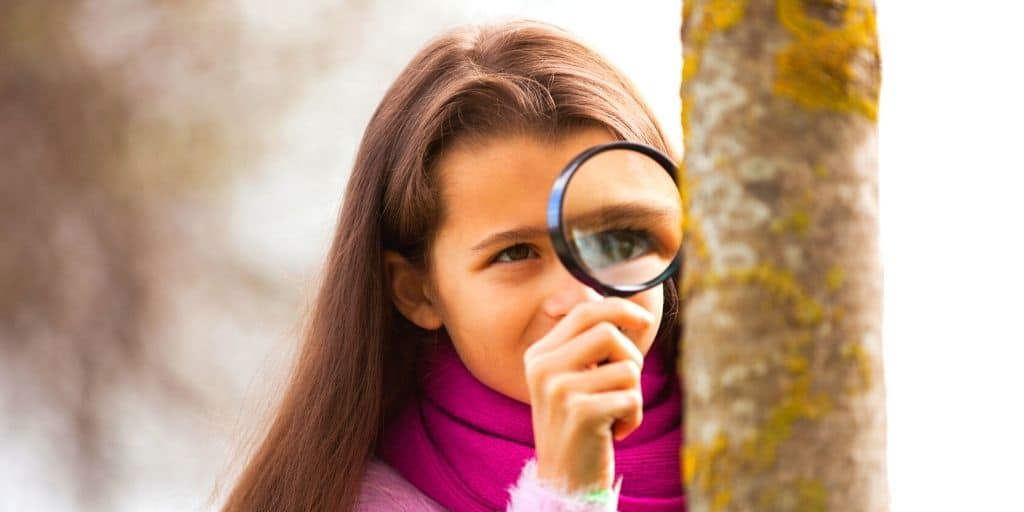
With growing, strong evidence of the benefits of outdoor and nature-based learning for kids, nature-based learning is a growing phenomenon both in classrooms and homeschools. Nature can help a student feel more attentive, less stressed, more self-disciplined, more engaged, more interested and more physically active and fit. In fact, just learning about nature can help kids feel more connected to it, which can help foster pro-environmental attitudes and behaviors that ideally all people would have throughout life.
So why isn’t nature-based learning more prevalent? There are many reasons ranging from stringent school rules to not enough room in the curriculum for natural history or nature-based learning. For many educators, a lack of confidence in their knowledge of the natural world keeps them from exploring it with their students.
But you don’t need a Ph.D. in Wildlife Biology or Ecology to teach kids about the natural world! Curiosity and good modeling is often all it takes!
In fact, you don’t even need to design your own curriculum. Because many PhDs and other experts in environmental education have already done the work of creating nature-based learning plans and resources. And many have provided free easy to use resources for anyone to use. You just have to know where to find them.
Fortunately, we do. We scoured the web, looking at some of our favorite wildlife and nature-based organization, learning about some new orgs along the way to come up with this list for you of nature-based learning curriculum for schools and homeschools! From citizen-science projects, outdoor explorations, activities, lesson plans, toolkits, you'll find many creative resources to help jumpstart nature-based education for your kids or students. There’s a whole world of nature-based activities and curriculum waiting for you! Enjoy!
Audubon Adventures
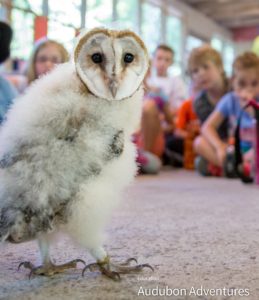 If you can get past the adorable barn owl image on the page, dive like a pelican into Audubon Adventures. This environmental education curriculum created by the National Audubon Society for grades 3 - 5 was developed by professional environmental educators and presents standards-based science content about birds, wildlife, and their habitats. It's a "must" resource to get kids hooked on birding—and what kid shouldn't be hooked on birding? Designed for classrooms and other educational settings as well as for enjoyment at home, Audubon Adventures introduces young people to the world of nature and wildlife through colorful magazines, online features and interactive games and puzzles, plus activities, guidance, and resources for educators. This user-friendly resource is so well designed that it even includes guidelines for optimal use of the resources, letters to send home to parents to explain the curriculum, background essays for educators and much more.
If you can get past the adorable barn owl image on the page, dive like a pelican into Audubon Adventures. This environmental education curriculum created by the National Audubon Society for grades 3 - 5 was developed by professional environmental educators and presents standards-based science content about birds, wildlife, and their habitats. It's a "must" resource to get kids hooked on birding—and what kid shouldn't be hooked on birding? Designed for classrooms and other educational settings as well as for enjoyment at home, Audubon Adventures introduces young people to the world of nature and wildlife through colorful magazines, online features and interactive games and puzzles, plus activities, guidance, and resources for educators. This user-friendly resource is so well designed that it even includes guidelines for optimal use of the resources, letters to send home to parents to explain the curriculum, background essays for educators and much more.
Cornell Lab of Ornithology K-12 Education program
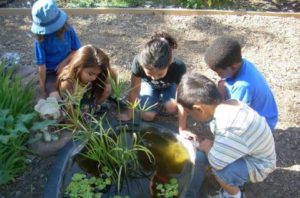 From the prestigious Cornell Lab of Ornithology, the K-12 Education program offers classroom and homeschool educators innovative K-12 resources that build science skills while inspiring young people to connect to local habitats, explore biodiversity, and engage in citizen-science projects. This free curriculum includes a Teacher’s Guide, accompanying Resource and Journal pages, and rich online resources such as The Discover Birds Kit or The Nature Detectives kit that will support educators in using citizen-science projects and outdoor explorations that generate authentic scientific questions. These nature-based resources can help you lead students in making observations, crafting and testing hypotheses, collecting and graphing data, drawing meaningful conclusions, and sharing their work.
From the prestigious Cornell Lab of Ornithology, the K-12 Education program offers classroom and homeschool educators innovative K-12 resources that build science skills while inspiring young people to connect to local habitats, explore biodiversity, and engage in citizen-science projects. This free curriculum includes a Teacher’s Guide, accompanying Resource and Journal pages, and rich online resources such as The Discover Birds Kit or The Nature Detectives kit that will support educators in using citizen-science projects and outdoor explorations that generate authentic scientific questions. These nature-based resources can help you lead students in making observations, crafting and testing hypotheses, collecting and graphing data, drawing meaningful conclusions, and sharing their work.
Encyclopedia of Life (EOL)
The Encyclopedia of Life (EOL) is an international effort, led by the Smithsonian Institution’s National Museum of Natural History, to raise awareness and understanding of living nature by providing free, open, multilingual, digital access to trusted information on all known species. EOL has grown to become one of the world’s largest free digital biodiversity information resources, with curated information on nearly 2 million species. Lesson plans are divided into three grade and age ranges, with five themes. Some lesson plans have one or more learning perks including the use of free Species Cards. Lesson plans are created by EOL and partners.
EPA
When we think the federal government, we don't usually think "easy to use" but the US EPA's educator resource center is an outlier. The website includes categorized offerings of an array of environmental and science-based lesson plans, activities and ideas below from EPA, other federal agencies and external organizations. While not entirely nature and wildlife-focused, some of the topics include climate change, energy, asthma, ecosystems and others. Resources include toolkits, activity books, lesson plans, flyers, coloring books and experiments. Grade level is indicated.
Forest Service
The US Forest Service website offers an Educator Toolbox with background resources organized by grade level to help kids understand forests and grasslands as well as topics such as climate change or pollinators. The site also offers professional development opportunities and resources for educators. One of its highlights is the National Inquirer journal geared towards middle school students, written by Forest Service scientists about their work. (see below).
Kids Gardening
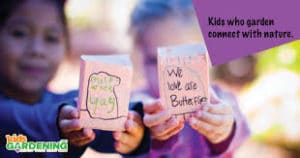 Kids Gardening is an organization that has been doing the work to plant more school gardens around the US for decades! The group aims to create opportunities for kids to play, learn, and grow through gardening, engaging their natural curiosity and wonder. Unsurprisingly, their website offers excellent resources to do this including lessons plans focused on garden activities arranged by grade level. Educators can read and download activities ranging from winter bird observation to studying life in the soil.
Kids Gardening is an organization that has been doing the work to plant more school gardens around the US for decades! The group aims to create opportunities for kids to play, learn, and grow through gardening, engaging their natural curiosity and wonder. Unsurprisingly, their website offers excellent resources to do this including lessons plans focused on garden activities arranged by grade level. Educators can read and download activities ranging from winter bird observation to studying life in the soil.
National Geographic, Explorer Classroom
![]() National Geographic has created an excellent resource for any educator to bring the passion of conservation and exploration to the classroom-- virtually. Explorer Classroom is an online program that connects classrooms around the world with National Geographic Explorers. While the students are not headed outdoors for nature-based learning, they will have the opportunity to learn about the exciting work of natural history experts and scientists who explore our world. Once a teacher registers their classroom, students have the opportunity to ask the explorer questions directly. Each month Explorer Classroom features a new theme and provides supporting resources for educators. Throughout the school year, classes can also join explorers "live" on an expedition. Explorer Classroom sessions are live events hosted on YouTube. They are open to the public and recorded.
National Geographic has created an excellent resource for any educator to bring the passion of conservation and exploration to the classroom-- virtually. Explorer Classroom is an online program that connects classrooms around the world with National Geographic Explorers. While the students are not headed outdoors for nature-based learning, they will have the opportunity to learn about the exciting work of natural history experts and scientists who explore our world. Once a teacher registers their classroom, students have the opportunity to ask the explorer questions directly. Each month Explorer Classroom features a new theme and provides supporting resources for educators. Throughout the school year, classes can also join explorers "live" on an expedition. Explorer Classroom sessions are live events hosted on YouTube. They are open to the public and recorded.
National Wildlife Federation
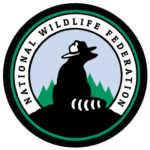 One of our top picks, the National Wildlife Federation's collection includes more than 1,000 lesson plans designed to introduce students to life science, ecology, wildlife biology, scientific identification, and observation. All NWF lesson plans are aligned to the National Science Education Standards and are categorized by type of species as well as grade level. In these fun lesson plans, students can learn about wildlife biology by discovering what makes a species endangered or learn about the water cycle or ecosystems like the Arctic. There is also an archive of webinars available. In addition to this collection, the National Wildlife Federation's Eco-Schools USA program offers educational pathways for educators in participating schools to utilize in the classroom. Excellent nature-based learning!
One of our top picks, the National Wildlife Federation's collection includes more than 1,000 lesson plans designed to introduce students to life science, ecology, wildlife biology, scientific identification, and observation. All NWF lesson plans are aligned to the National Science Education Standards and are categorized by type of species as well as grade level. In these fun lesson plans, students can learn about wildlife biology by discovering what makes a species endangered or learn about the water cycle or ecosystems like the Arctic. There is also an archive of webinars available. In addition to this collection, the National Wildlife Federation's Eco-Schools USA program offers educational pathways for educators in participating schools to utilize in the classroom. Excellent nature-based learning!
Natural Inquirer, US Forest Service
 The Natural Inquirer program from the US Forest Service produces a variety of science education materials for PreK through grade 12. And Natural Inquirer is a free science education journal written for middle through high school age students. In 1998, Natural Inquirer was created so that scientists could share their research with students. Investigator is a free science journal written for upper elementary level students. The journal follows the same format as Natural Inquirer just written at a different level. Currently, three editions of Investigator are available. Lesson plans, graphic organizers, scientists cars.
The Natural Inquirer program from the US Forest Service produces a variety of science education materials for PreK through grade 12. And Natural Inquirer is a free science education journal written for middle through high school age students. In 1998, Natural Inquirer was created so that scientists could share their research with students. Investigator is a free science journal written for upper elementary level students. The journal follows the same format as Natural Inquirer just written at a different level. Currently, three editions of Investigator are available. Lesson plans, graphic organizers, scientists cars.
The Nature of Teaching, Purdue Extension
 The Nature of Teaching includes formal standards-based curricula and informal activity-based curricula all centered around getting youth outside. The three program areas of the formal curricula include: Wildlife, Health and Wellness, and Food Waste. Each program area provides standards-based lesson plans free as a downloadable PDF. Lesson plans are classroom-ready for grades K-12. The Nature of Teaching also offers professional development workshops for teachers focused on science, the environment, and getting students connected with nature.
The Nature of Teaching includes formal standards-based curricula and informal activity-based curricula all centered around getting youth outside. The three program areas of the formal curricula include: Wildlife, Health and Wellness, and Food Waste. Each program area provides standards-based lesson plans free as a downloadable PDF. Lesson plans are classroom-ready for grades K-12. The Nature of Teaching also offers professional development workshops for teachers focused on science, the environment, and getting students connected with nature.
Nature Play Queensland
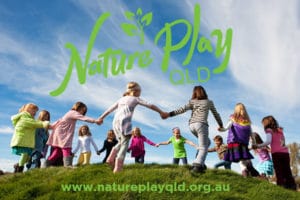 This curriculum from the good group down under, Nature Play Queensland, provides primary lesson plans for infants and toddlers up to Grade 6. Lesson plans span topics including Geography, Math, English and Science and are based on learning in the outdoors. Lesson plans are linked to the appropriate Australian National Curriculum, and resources to support My Time, Our Place outcomes.
This curriculum from the good group down under, Nature Play Queensland, provides primary lesson plans for infants and toddlers up to Grade 6. Lesson plans span topics including Geography, Math, English and Science and are based on learning in the outdoors. Lesson plans are linked to the appropriate Australian National Curriculum, and resources to support My Time, Our Place outcomes.
Nature Works Everywhere, The Nature Conservancy
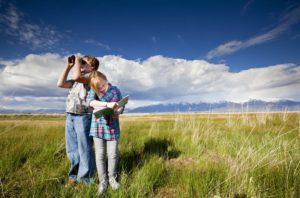 Get a view of a coastal rainforest from a canoe or download school garden design tools! The Nature Conservancy and its 550 scientists created Nature Works Everywhere to help students learn the science behind how nature works and how to protect it Videos, virtual field trips, webinars, lesson plans, and toolkits make this a fantastic resource for teachers, homeschoolers or even weekend learning with your kids. The interactive lesson plans align to standards and can be customized for each classroom. You can search by grade or type of resource.
Get a view of a coastal rainforest from a canoe or download school garden design tools! The Nature Conservancy and its 550 scientists created Nature Works Everywhere to help students learn the science behind how nature works and how to protect it Videos, virtual field trips, webinars, lesson plans, and toolkits make this a fantastic resource for teachers, homeschoolers or even weekend learning with your kids. The interactive lesson plans align to standards and can be customized for each classroom. You can search by grade or type of resource.
Outdoor Classroom Day
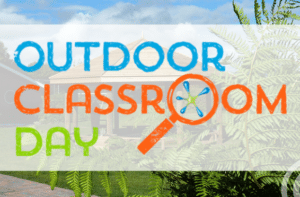 Outdoor Classroom Day is a global campaign to inspire and celebrate outdoor learning and play. The global campaign encourages a day of outdoor, nature-based learning on two days per calendar year. The campaign website includes excellent facts and other resources but also includes lesson plans for classrooms or homeschoolers as well as nature0based learning topic ideas sourced from a broad range of experts and organizations. Build an all-natural feeder with your class or head out on a micro hike, the ideas are organized according to appropriate ages and are typically downloadable as well.
Outdoor Classroom Day is a global campaign to inspire and celebrate outdoor learning and play. The global campaign encourages a day of outdoor, nature-based learning on two days per calendar year. The campaign website includes excellent facts and other resources but also includes lesson plans for classrooms or homeschoolers as well as nature0based learning topic ideas sourced from a broad range of experts and organizations. Build an all-natural feeder with your class or head out on a micro hike, the ideas are organized according to appropriate ages and are typically downloadable as well.
Scholastic
Scholastic materials are in tens of thousands of schools and tens of millions of homes worldwide. But this giant also offers thousands of grab-and-go lesson plans, unit plans, discussion guides, extension activities, and other teaching ideas. The topics range but there many nature-based ideas to choose from on such topics as insects, raptors, earth, plants and ocean life.
The Wildlife Trusts, Wildlife Watch
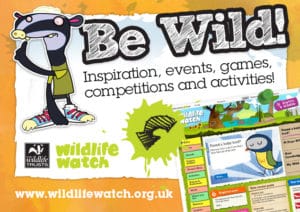 Wildlife Watch is the junior branch of one of our favorite wildlife organizations, UK-based The Wildlife Trusts. Wildlife Trusts is the UK’s leading environmental action club for kids. The Wildlife Watch website has downloadable nature-based activity sheets and games. But the best are the customizable spotting sheets that you can download after you register. Very cool!
Wildlife Watch is the junior branch of one of our favorite wildlife organizations, UK-based The Wildlife Trusts. Wildlife Trusts is the UK’s leading environmental action club for kids. The Wildlife Watch website has downloadable nature-based activity sheets and games. But the best are the customizable spotting sheets that you can download after you register. Very cool!
World Wildlife Fund, Wild Classroom
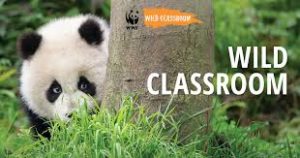 For many kids, a love for wild animals will foster a lifelong connection with nature. Tap into that natural passion with World Wildlife Fund's Wild Classroom. WWF's resources for learners include a range of toolkits for teachers and homeschoolers on irresistible animals like polar bears, tigers and dolphins featuring information guides and activities about some of WWF’s priority species and conservation goals. Through these subject-integrated nature-based lessons, students can learn how their actions help shape the future of nature. The WIld Classroom contains seven detailed species-specific lesson plans, meet the scientist videos, coloring pages, quizzes, augmented reality app.
For many kids, a love for wild animals will foster a lifelong connection with nature. Tap into that natural passion with World Wildlife Fund's Wild Classroom. WWF's resources for learners include a range of toolkits for teachers and homeschoolers on irresistible animals like polar bears, tigers and dolphins featuring information guides and activities about some of WWF’s priority species and conservation goals. Through these subject-integrated nature-based lessons, students can learn how their actions help shape the future of nature. The WIld Classroom contains seven detailed species-specific lesson plans, meet the scientist videos, coloring pages, quizzes, augmented reality app.
WWF-Canada, The Living Planet at School
WWF-Canada is the country’s largest international conservation organization. WWF-Canada's The Living Planet @ School program engages students in the practice of sustainability as a lifelong journey. It promotes and celebrates students as the designers and doers of projects that integrate sustainability and action for nature into their learning experience. Educators can go online to register to access a range of activities and toolkits for classes offered throughout the year, share their students' progress and stories and more!
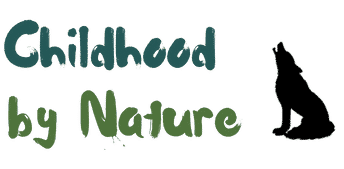
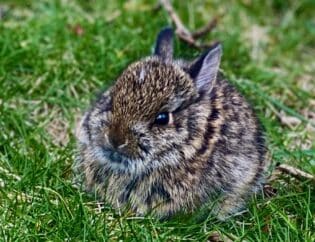
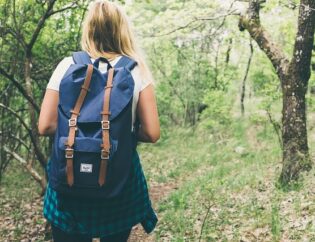
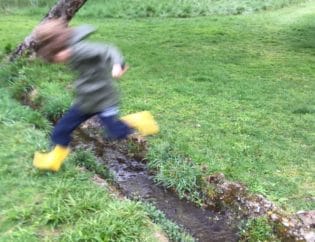
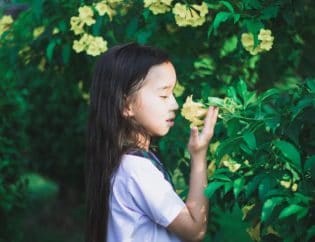


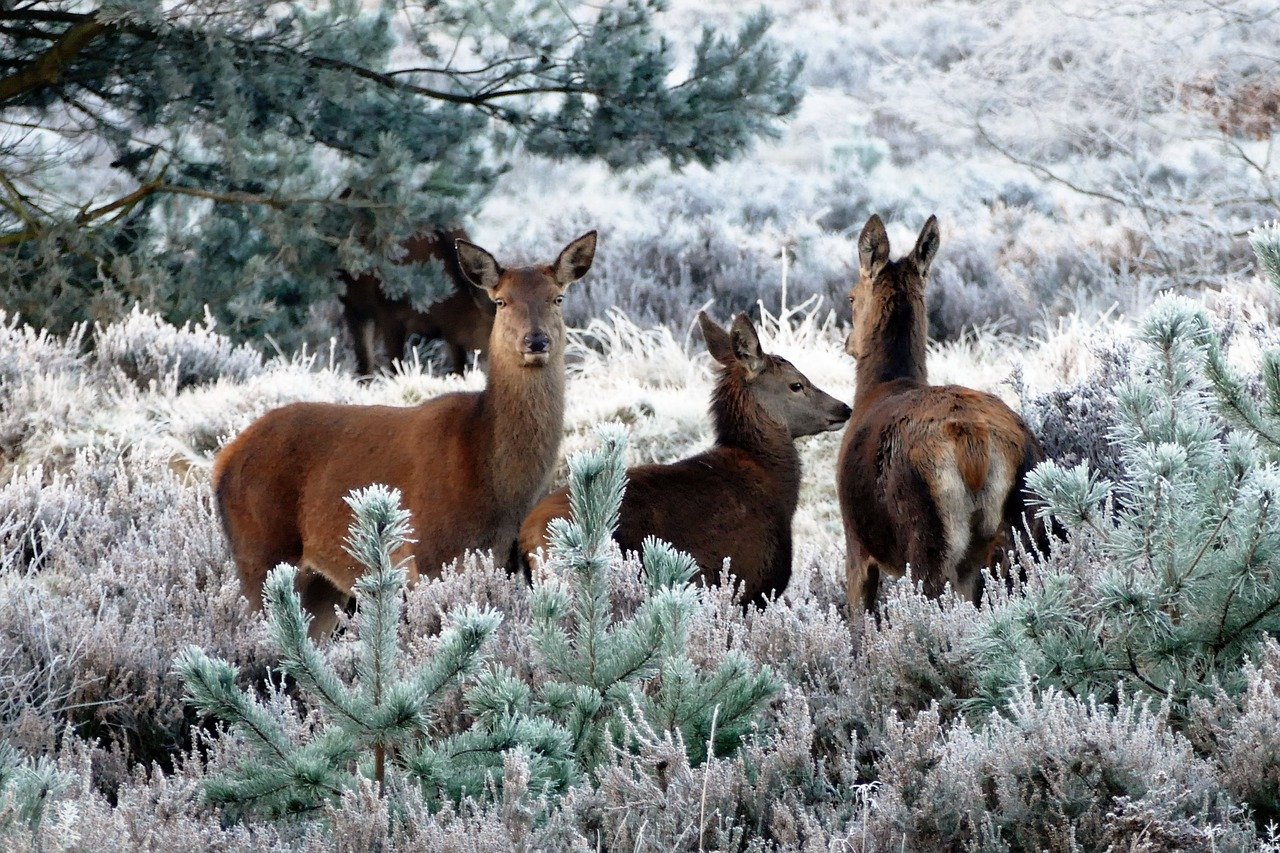

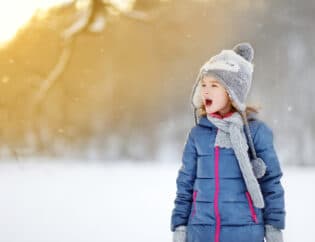
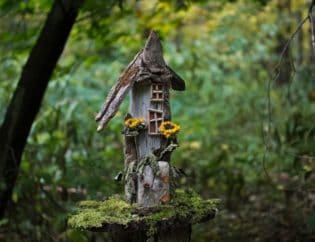
[…] Compilation of Free Nature Based Curricula […]
[…] Nature-Based Learning Curriculums […]
Comments are closed.